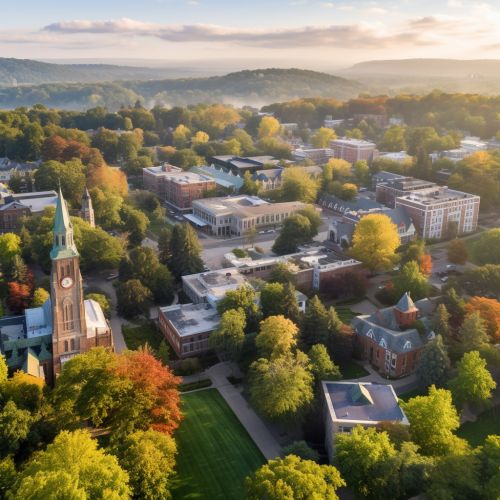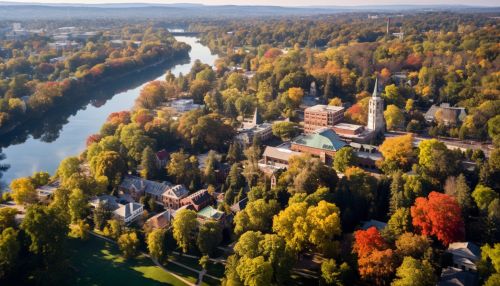Cornell University
History
Cornell University was founded on April 27, 1865, as the result of a New York State (NYS) Senate bill that named the university as the state's land grant institution. Senator Ezra Cornell offered his farm in Ithaca, New York, as a site and $500,000 of his personal fortune as an initial endowment. Fellow senator and experienced educator Andrew Dickson White agreed to be the first president. During the next three years, White oversaw the construction of the first two buildings and traveled to attract students and faculty.


Academics
Cornell is organized into seven undergraduate colleges and seven graduate divisions at its main Ithaca campus, with each college and division defining its specific admission standards and academic programs in near autonomy. The university also administers two satellite medical campuses, one in New York City and one in Education City, Qatar, and Cornell Tech, a graduate program that incorporates technology, business, and creative thinking.
Research
Cornell is one of ten private land grant universities in the United States and the only one in New York. Of its seven undergraduate colleges, three are state-supported statutory or contract colleges through the State University of New York (SUNY) system, including its agricultural and human ecology colleges as well as its industrial labor relations school. Of Cornell's graduate schools, only the veterinary college is state-supported.
Campus
The main campus is on East Hill in Ithaca, New York, overlooking the city and Cayuga Lake. The university is broadly organized into seven undergraduate colleges and seven graduate divisions at its main Ithaca campus, with each college and division defining its admission standards and academic programs in near autonomy.
Student life
Cornell's student body consists of nearly 15,000 undergraduate and 8,000 graduate students from all 50 American states and 119 countries. The university is also home to the largest number of students in the Ivy League, and one of the most diverse, with nearly 40% of undergraduates identifying as students of color.
Athletics
Cornell's sports teams are known as the Big Red and compete in the Ivy League. The university fields teams in 36 intercollegiate sports and provides a variety of club, intramural, and physical education programs, which altogether involve more than 3,000 students.
Notable alumni
Cornell counts more than 250,000 living alumni, and many have gone on to high positions in academia, business, politics, and other fields. Some of the university's notable alumni include E.B. White, author of Charlotte's Web; Ruth Bader Ginsburg, former Supreme Court Justice; and Bill Nye, the Science Guy.
